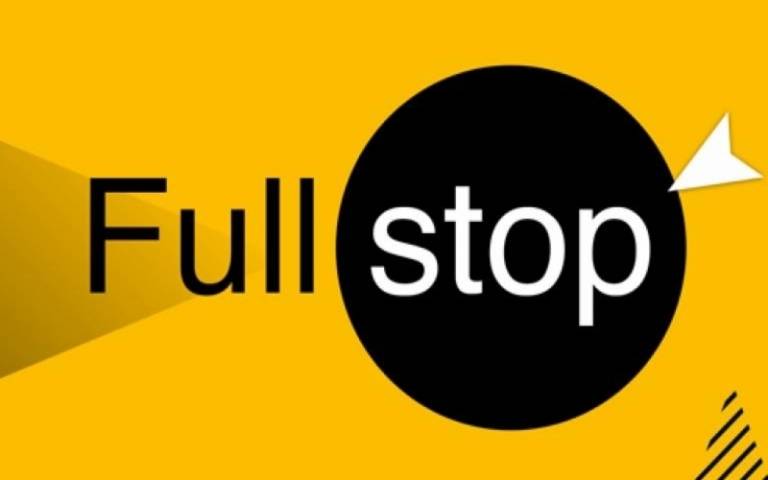UCL publishes second annual report on Bullying, Harassment and Sexual Misconduct
20 September 2021
UCL has published its second annual report into bullying, harassment and sexual misconduct looking at reports received through the online platform Report + Support between February 2020 – February 2021.

Report + Support enables students and staff to report ‘anonymously’ or ‘contact an advisor’ to find out their options for support and resolution.
The publication of the annual report is part of UCL’s commitment to improve transparency and build trust and confidence in reporting.
UCL is clear that these behaviours have always been unacceptable. The Report + Support reporting system can aid resolution and support. The university has also put further measures around the prevention of misconduct such as the introduction of UCL’s Personal Relationship Policy in November 2020.
Headline findings:
- A total of 335 reports (41 fewer than the 2020 report)
- 47% of the reports were by staff, 25% by postgraduate students, 25% (up from 11% in 2020) by undergraduate students and 3% by third party staff.
- Bullying remains the key concern for staff, with 54% of all reports about bullying coming from staff.
- Sexual misconduct reporting is most significantly concentrated among undergraduate students, representing 55% of all sexual misconduct reports.
- Anonymous reports decreased 12.4% since the 2020 report.
Key reasons for reporting anonymously:
- I'm worried about retaliation. 108, 17% (up from 9.2%).
- I have concerns it might affect my current/future career. 102, 16%
- Nothing would be done if I made a complaint. 96, 15%
- I am worried about being called a troublemaker. 75, 12%
Cases:
- There were 10 formal student cases, and these were all students reporting other students. This is down from 24 last year, likely to be due to fewer in-person interactions due to the Covid-19 pandemic. While there have been fewer formal cases, we have received an increased number of reports from students.
- There have been 37 formal cases reporting staff behaviour during the period. This is the same number as last year. Outcomes ranged from oral and written warnings to multiple dismissals.
Actions taken to prevent and respond to bullying, harassment and sexual misconduct:
- UCL continues to improve and develop the reporting tool for students and staff to report issues of unacceptable behaviour; ‘Report + Support’ – a web accessibility audit was undertaken this year and reporting procedures review is underway.
- The next phase of the Full Stop Campaign, Let’s Talk About Race was launched and quickly became the most visited page on the site.
- The Prevention of Bullying, Harassment and Sexual Misconduct Policy was updated in line with UKRI’s recommended actions for preventing harm in research.
- Hosted an international conference: ‘Calling Time on Sexual Misconduct: best-practice prevention in higher education’. The conference was attended by 350 people from 30 different countries.
- A further 17 departments took part in Where do you draw the line? training on preventing harassment and bullying which was transitioned to an online workshop due to the pandemic.
- Students’ Union UCL Active Bystander training reached nearly 10,000 new and returning students with online facilitated workshops, up from 2323 in the previous year.
- 23 new dignity advisors were recruited and trained (bringing the total to 36) to work with students and staff on informal responses to bullying, harassment, and sexual misconduct.
- UCL Security has applied for ProtectED accreditation, which is a comprehensive audit of the student safety, security, and wellbeing practices that have been embedded at UCL. The outcome of this application will be announced in Autumn 2021.
Writing in the foreword of the report, UCL President & Provost Dr Michael Spence said: “The past year has been an extremely challenging one, as we shifted our ways of working, studying, conducting assessment, and interacting with one another online. As a result, we have seen a corresponding increase in online mediated abuse. Across the UK there has also been a huge rise in calls to domestic violence charities Refuge, the UK’s largest domestic abuse charity, reported that calls to its Helpline rose by 25% after lockdown measures began.”
“Accountability and transparency are values that UCL strongly upholds, which is why publishing these data and describing our approaches to tackling harmful behaviour are important. We welcome feedback on the information contained in this report and the data you would like to see in future reports.”
If you have any feedback on this report, please get in touch.
Next steps:
Among other things listed in the full report in the coming year UCL intends to:
- Review and improve the investigation and disciplinary processes for students and staff raising concerns of bullying, harassment and sexual misconduct.
- Launch the Full Stop to racial harassment campaign, ‘Let’s talk about race’.
- Design and implement a new Intervention Framework for departments that are experiencing or perpetuating negative EDI behaviours, such as non-inclusive cultures, conflict, creating reports from students on EDI issues and so forth.
 Close
Close

